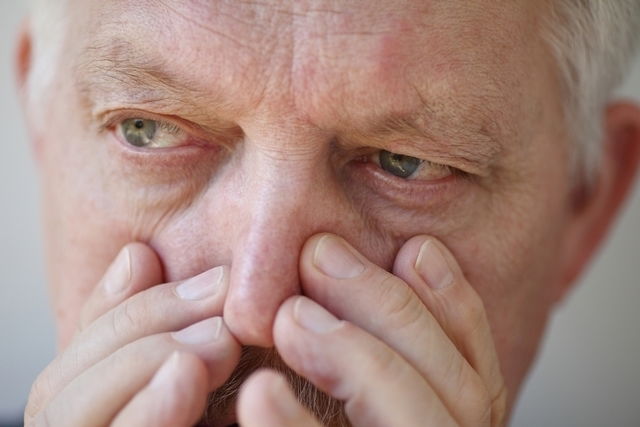How to Stop Burning After Using Nasal Spray
Several situations or conditions, such as changes in climate, hay fever, sinus infections, and even menopause may cause a feeling of burning in the nose. Burning is usually not serious, but it can cause discomfort. If the sensation is present along with with fever, dizziness, or nosebleeds, you should follow-up with your doctor to confirm whether there is an abnormality.
The nose serves as one of the defense mechanisms of the body. It heats and filters the air, impeding microorganisms and pollutants, like dust from going into the respiratory tract.
There are some situations that can cause the nasal mucosa to dry out, leading to a stinging or burning sensation. The six major causes of a burning nose are:

1. Changes to climate
Dry weather is the main cause of a burning nose sensation. This happens because air that is too hot or lacking humidity will the dry up the airways, which can result in your nose burning when inhaling..
In addition to dry weather, being exposed to air conditioning for a long time may also dry-out the nasal mucosa and lead to a burning nose sensation.
What to do: One way to stop your nose from burning during dry weather is to simply place a bowl of water in your bedroom. This will add humidity to the air. In addition, it's important to ensure plenty of water intake during periods of dry weather. You can also rinse your nostrils with a 0.9% saline solution.
2. Hay fever
Hay fever is an inflammation of the nasal mucosa caused by the presence of irritants, such as dust, pollen, pet hair, feathers, perfume, or disinfectants. These substances cause irritation in the mucosa, leading to rhinitis and itchiness, as well as a burning sensation in the nose.
What to do: To prevent hay fever, it's important to ensure your house is free of the agent that triggers symptoms. This can be done with regular cleaning. In more serious cases, your doctor may prescribe may antihistamines or allergy injections.
3. Sinus infection
A sinus infection, or sinusitis, is an inflammation of the sinuses which causes a headache, pressure in the head, rhinitis, and, at times, a burning nose sensation. Sinusitis can be caused by the influenza virus or by bacteria. It is important to that the infection is diagnosed so that prescribed treatment can be effective.
What to do: Your doctor will initiate treatment for a sinus infection according to the cause. He or she may prescribe antibiotics or antivirals. To help with the pressure sensation in the head, you can take decongestants..
4. Cold and flu
Both the cold and flu viruses can cause sneezing, rhinitis, and a sensation of burning nostrils due to irritation of the nasal mucous in the airways.
What to do: To fight either virus, you may need to take medication to relieve the symptoms, such as acetaminophen. Ensure adequate hydration by drinking plenty of fluid, such as juice and water.
5. Medication
Some medications may dry out the nasal mucosa as a side effect. This is especially true with nasal sprays or decongestants. Some sprays contain ingredients that can irritate the nose, which can actually increase the risk for infection.
What to do: If a burning nose sensation is related to your medication use, it's important to report your symptoms to your doctor and discuss alternatives. With nasal decongestants, the doctor may prescribe a different type that does not contain and irritating chemical substances.
6. Sjögren Syndrome
Sjörgen syndrome is an auto-immune disease caused by inflammation of various body glands. It often results in a dry mouth, dry eyes, and, occasionally, a dry nose.
What to do: Diagnosis and treatment of symptoms like dry mouth, difficulty swallowing, difficulty talking, dry eyes, and sensitivity to light, is typically directed by a rheumatologist. See your doctor if you have any of these symptoms.
When to go to the doctor
You should see the doctor if the burning nose sensation lasts for more than one week and if it accompanied by other symptoms, such as:
- Difficulty breathing;
- Headache;
- Throat ache;
- Nose bleeding;
- Fainting;
- Dizziness;
- Fever.
In addition, if you are experiencing dryness elsewhere (e.g. eyes, mouth, and genitals), it is important to see your doctor, as these could be related to more serious illnesses, such as Sjogren syndrome.
How to Stop Burning After Using Nasal Spray
Source: https://www.tuasaude.com/en/nose-burning/